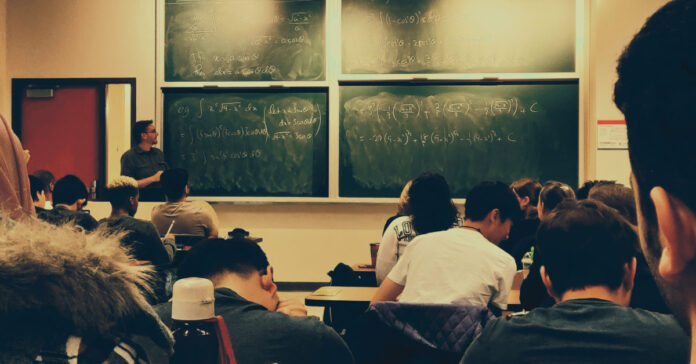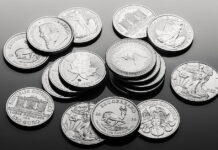
Somewhere in the late 1970s, a learned man came to my school and spoke to our science class about how we were running out of natural gas and how this would be a problem, as the globe was getting colder. Why, he said, we could be heading into another ice age!
My, how times have changed.
But one thing that does not seem to change is the recurring belief that we have reached “peak something,” and the future is all downhill. Peak natural gas, peak oil, peak food, peak prosperity, peak wealth, etc. Yet for close to 250 years, this country somehow kept functioning, often using technology to overcome the predicted shortages. For example, new exploration and drilling techniques have found more oil. Fracking resulted in more gas. Fertilizers, GMO seeds, and better farming chemicals and techniques allowed farmers to produce more food per acre.
American Ingenuity
When faced with these challenges in the past, it was often American ingenuity that solved the problem. Unfortunately, that’s less likely these days. One reason is our educational system.
When I was growing up, schools wanted to help kids succeed to the best of their ability. Today, our society is so focused on “fairness” that schools try to hold back the smart kids because it is impossible to boost the slower kids beyond their capabilities. (No one asks if forcing them the lowest common denominator is fair to the smart kids. Reverse discrimination is easy to ignore.)
As a result, our educational system and culture are no longer designed to promote the smartest, cleverest people because the powers that be deem that would be unfair to those who are not as smart. For example, the top colleges limit the number of Asian kids admitted, even though they may be the strongest candidates. The problem starts at lower levels, where public schools are eliminating classes for gifted or advanced students because it makes the “ungifted” kids feel bad. Some districts want to eliminate letter grades so no one can outperform anyone and no one can fail. The result is that we are graduating fewer brilliant young minds with degrees in chemistry or engineering who can help solve the world’s problems.
Legislation is Replacing the Free Market
I also question whether our government wants us to solve the problems we face. They prefer to use these “emergencies” as an opportunity to grab power, take away rights, and force people to comply with their regulations.
For much of our history, the free market resolved our problems. Today, the government doesn’t want the problem solved. Instead, they want to legislate it away.
For centuries, innovative solutions to problems led to new products, new markets, and paradigm shifts. The reason we don’t all drive horse and buggies is because the internal combustion engine was not only more powerful, it was superior in many other ways. No one had to legislate cars and trucks into existence; the market acknowledged their superiority. Same when airplanes replaced dirigibles. It’s a common theme in the 20th century. Cassettes tapes replaced 8-tracks and 45s, and CDs then replaced cassettes, only to be replaced by MP3 players and now streaming services. No one had to pass a law to make people give up their typewriters and start using computers.
When someone produces an electric vehicle (EV) clearly superior to a gas or diesel vehicle, it will take the market by storm. That hasn’t happened because batteries take too long to charge, don’t hold sufficient power to allow long range driving, make EVs expensive than gasoline-powered cars, and often wear out more quickly than the rest of the vehicle. Likewise, solar and wind power are not yet ready to compete with coal or gas-powered plants in a free market. Progressive governments have forced utilities to adopt them while regulations have made many coal plants uneconomical or illegal to operate. In a very socialist move, the government replaced free market forces as the arbiter of what is allowed or not allowed, much to our detriment.
Profit Became a Bad Word
Much success has come to America because of the profit motive. People invent better products, systems, and processes either to save money or to make it. When you remove the incentive or add so many disincentives, there is no profit, then there will be little or no innovation. That’s what Biden’s anti-fossil fuel policies have done; they have removed the likelihood of profit from drilling for oil and gas. The return on investment is to low companies are not in big hurry to invest the money required to produce more oil. Biden and the socialists behind the curtain don’t get this because they think capitalism and profit are bad.
When people were laid off because of the pandemic, many didn’t go back to work when they realized they weren’t significantly better off working 40 hours a week at their employer’s beck and call. They realized it was cheaper for them to stay home in their sweats and do nothing than get dressed up, drive to work, pay for parking, put their kids in daycare, and work unpaid overtime while answering the boss’ texts and emails off the clock. If you can work a few shifts as an Uber driver or a GrubHub delivery person on your own schedule and net as much as that old 40 hour job, why would you go back to the coal mines?
Money makes the world go ‘round, but too many people today think the ambition of getting ahead means you have to put someone else down. That’s not the case; very few people work at jobs where they take advantage of other people or keep them down. I still believe in an America where it is possible to achieve the American dream. Unfortunately, government programs have made it too easy to do nothing, while government regulations have made it too hard to make a living in a small business.
Peak Inflation
As we head into peak inflation, I have to wonder if there is anyone out there with the combination of brain and balls to save us this time around? It sure isn’t Joe Biden. It doesn’t look like it is Jerome Powell.
Looks like this time around, you’re going to have to look out for yourself. A good start is to remember the world isn’t fair.






